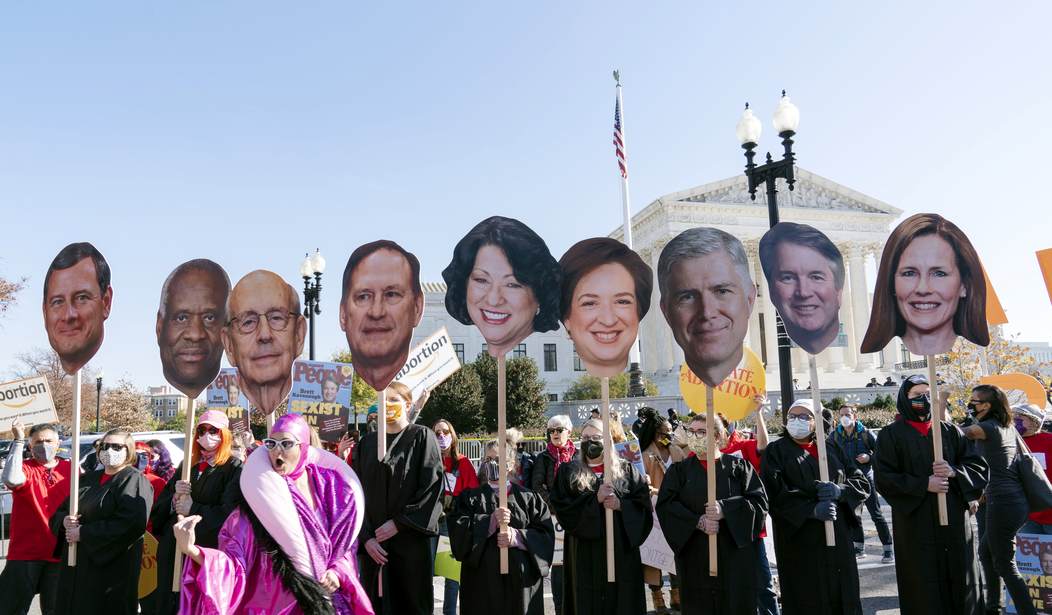On Wednesday, the Supreme Court of the United States (SCOTUS) heard oral arguments for the case Dobbs v. Jackson Women’s Health Organization, which surrounds the constitutionality of a 15-week abortion ban in Mississippi. As I covered, Dobbs is the first case in decades that has the potential to overturn landmark cases Roe v. Wade and Planned Parenthood v. Casey, which were decided in 1973 and 1992, respectively.
Following the hearings, reports indicated that the Court would be open to overturning Roe, or at least upholding Mississippi’s 15-week abortion restriction legislation. As I covered in July, abortion limits at 12 weeks to 15 weeks gestation are mainstream in western Europe, whereas the United States’ elective abortion laws are more in line with China and North Korea.
A Yahoo Finance article published Thursday, the day after the hearings, argued that overturning abortion rights guaranteed by Roe would become a “business nightmare.” Why? Columnist Rick Newman, who penned the article, claimed that companies that operate in states that will pass restrictive abortion legislation following the overturn of Roe will face backlash from pro-abortion activists.
“[S]uch a decision, likely by the summer of 2022, would embolden other states to strengthen anti-abortion laws, which, in turn, would produce a furious backlash by abortion-rights supporters,” Newman stated in the article.
“And one of the first targets of protesters these days is big companies operating in states propagating whatever law the protestors object to,” he continued. “If the Supreme Court overturns Roe, it wouldn’t mean abortion is banned nationwide; it would mean states can choose for themselves whether to ban the procedure, with no federal law standing in the way.”
Recommended
He then went on to explain how several states currently have “trigger laws” that would automatically ban abortion if SCOTUS allows them to do so. With Dobbs, the Court could do just that.
“Abortion bans could become the most explosive political issue in modern times because the Court, if it upholds the Mississippi law, would be setting a precedent starkly contrary to public opinion,” Newman added, citing studies that claim the majority of Americans support abortion access.
Newman also noted that red states with “Republican governors and, in most cases, GOP-controlled legislatures” will pass bans on abortion while “[b]lue states, such as those on most of the East and West Coasts, might move in the opposite direction by codifying the right to an abortion and welcoming abortion seekers from states where the practice is banned.”
As I covered Thursday, GOP pro-abortion Sen. Susan Collins (ME) said in a statement this week that she is “open” to discussions regarding codifying Roe into law. As I also covered, state lawmakers in Colorado are working towards codifying Roe as well. California, similarly, wants to boost the state’s “abortion infrastructure” to accommodate more out-of-state patients.
“Companies that come down on one side of a hot-button issue also risking alienating customers on the other side,” Newman concluded. “No wonder most CEOs strongly prefer to stay out of politics altogether. That’s increasingly difficult, and 2022 could present more political landmines than businesses have had to navigate in years.”
As Townhall has covered, several House Democrats have announced they will not be seeking reelection next cycle, foreshadowing a “red wave” come 2022.

























Join the conversation as a VIP Member